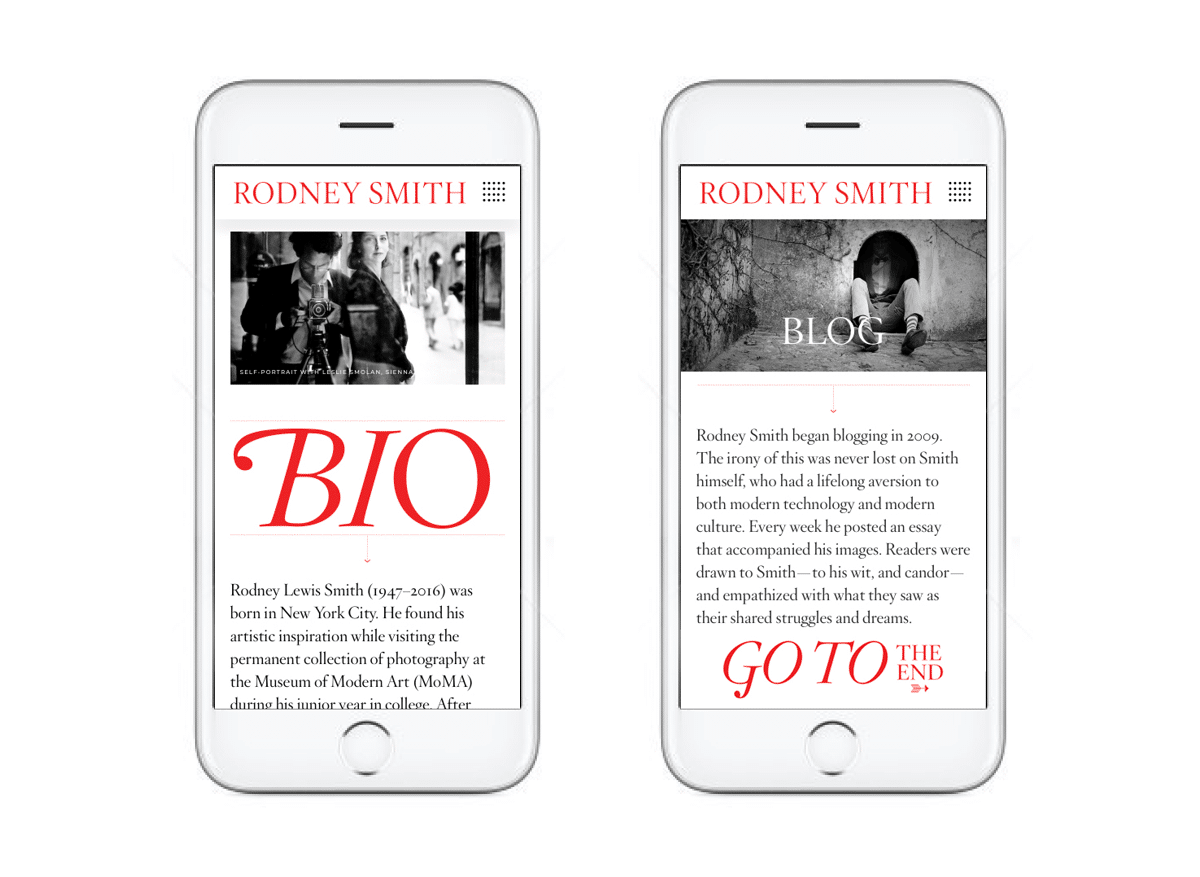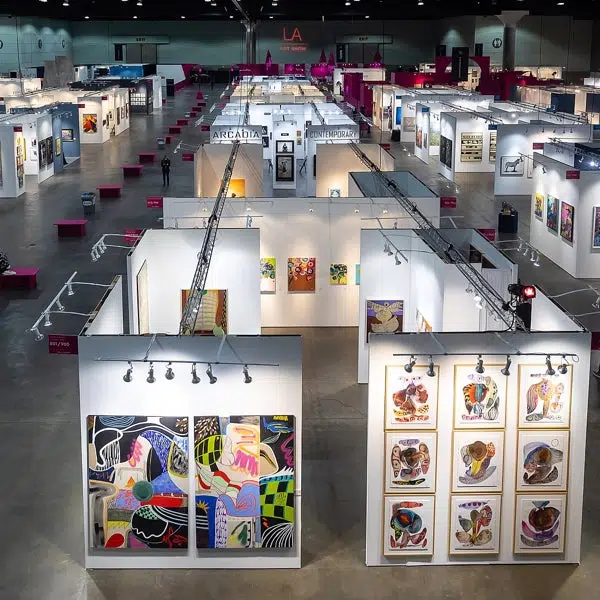
How does one transform the website of someone who has passed away into a valuable resource that will honor their legacy and stay true to their style? This is the question that the Rodney Smith Estate grappled with after the acclaimed fashion and fine art photographer passed away in 2016. While they wished to honor his spirit, they also wanted to make sure that the website would answer any questions that curators, art historians, or collectors may have. After two years of work, the team's diligence has paid off as the newly revamped Rodney Smith website has been named an Honoree at this year's Webby Awards.
There were nearly 13,500 projects submitted to the 25th annual awards, which celebrate the best of the internet, and only the top 20% receive an Honoree title. As part of the Best Use of Photography Category, the Rodney Smith website is in good company with the likes of National Geographic, CNN, and Forbes. The Webby is a culmination of a strong collaborative effort between Leslie Smolan and Patricia Barrett of Smith's Estate, designer Jennifer Schuetz-Domer, and developer Hunter Hancock.
Schuetz-Domer first collaborated with Rodney Smith and Smolan in 1993, as she helped put together The Hat Book. Her detailed eye for design and for staying true to Smith's aesthetic is part of what helps the site seem like something Smith himself would have created. Hancock, who was just a freshman in college when the project started, brought fresh eyes and a willingness to have the development meet the design as much as possible. Together with Smolan and Barrett, they spent several years creating everything from carefully curated thematic galleries showing the breadth of Smith's work to an archive of over 4,000 images that allows users to create custom lightboxes.

“Rodney was just known for this level of perfection,” Leslie Smolan shares with My Modern Met. As Smith's wife and creative director for over 30 years, she is now the executive director of his estate. “No matter who worked with him, whether it was the carpenter at the house or the framer, he just set the bar so high that everyone did the best work they'd ever done. So that was our mandate going into this.”
Lovingly done and highly detailed, each section has been carefully crafted for a specific purpose. For instance, the thematic galleries are not simply ordered by title or date. Rather, they were thought of almost like a book layout. Schuetz-Domer spent quite a bit of time finding the perfect pairs to speak to one another, just as she would have done on a book project for Smith.
For Hancock, this vision is what makes the project unlike anything he'd ever worked on. “Part of what makes it so unique is that it was really designed from a print design background. Jen and Leslie bring this very different perspective to web design that makes this really stand out when compared to other modern websites. By virtue of incorporating all of these interesting print techniques and by being really precise on all of the typography, I think we were able to come out with a really refined product.”

In addition to staying true to Smith's aesthetic, the website also preserves Smith's own words. His popular blog remains intact and a video allows him to keep spreading his vision of his own work. By making each section readily accessible, the estate hopes to further educate the public about Smith and his work. The collecting section goes into meticulous detail about Smith's prints, how they are priced, and the limited nature of each printed image. And the exhibition section is a valuable resource for art historians who want to know the collections that hold his work, as well as fans who want to be able to experience his photography in person.
The Webby Awards are a perfect way to cap the unique experience of putting together this tribute to Smith and his work. “This is a huge honor,” says Smolan. “In a year of catastrophic everything—from COVID sweeping the world to politics splitting us apart—it’s gratifying that the judges acknowledged the quiet, the beautiful, and the hopeful qualities of Rodney’s photographs.”
The Rodney Smith website is a rich resource that honors the acclaimed photographer and his work.


























































































